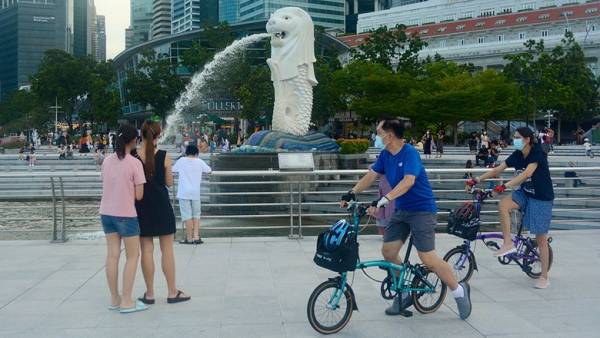
As Minister of Health He & nbsp; Ye Kun explained, such measures are related to & nbsp; the fact that & nbsp; accounts for the bulk of the unvaccinated patients who need expensive treatment, beds in intensive care wards, staff nursing and & nbsp; others. And & nbsp; it is for & nbsp; due to them, the healthcare system of Singapore has been undergoing a heavy load in & nbsp; lately.
For a more illustrative example, the Ministry of Health published the average bill for & nbsp; treatment for & nbsp; coronavirus in & nbsp; Singapore.
If unfavorable the development of a situation when a person enters intensive care, the average bill will be approximately $ 18.5 thousand.
This includes directly staying in the & nbsp; intensive care unit, the use of special equipment, a course of anticonvulsant therapy. But & nbsp; citizens and & nbsp; foreigners with permanent resident status will be able to use the accumulative social insurance system, in this case the amount will be reduced to & nbsp; $ 1.5 thousand & mdash; & nbsp; $ 3 thousand
Another expense item for & nbsp ; unvaccinated residents, which may appear in & nbsp; case of coronavirus infection, will be referred to & nbsp; special isolation centers. Staying there in & nbsp; for seven days, the minimum quarantine period, will cost & nbsp; $ 3.3 thousand
New life with & nbsp; vaccines
The government in & nbsp; August, when the immunization rate reached 80%, began to & nbsp; a gradual removal of social restrictions. So, at the & nbsp; very beginning it was allowed to eat in & nbsp; cafes and & nbsp; restaurants, to engage in & nbsp; gyms only with & nbsp; availability of two vaccines. Then unvaccinated residents were forbidden to enter & nbsp; large shopping centers, except for grocery stores and & nbsp; pharmacies, visit libraries, cinemas, most concert venues, and & nbsp; now & nbsp; already go to & nbsp; guests, gather companies.
Since & nbsp; January next year, only those who & nbsp; have completed a full course of immunization, have a medical treatment or & nbsp; and & nbsp; have had a coronavirus infection in the & nbsp; last 270 days will be able to go to work. Otherwise, employees have to do PCR tests every day at their own expense, moreover, the employer will be able to send such employees on & nbsp; unpaid leave and & nbsp; even fire them.
Singapore has become one of the world leaders in terms of vaccination of the population, today almost 87% of residents took both doses, or 96% of those who, due to age or health reasons, can be vaccinated.
Vaccinations against coronavirus have been made here since & nbsp; 12 years old, according to & nbsp; forecasts in & nbsp; January & nbsp; & mdash; February, immunization will be available for & nbsp; & nbsp; children & nbsp; 5 to & nbsp; 11 years old.